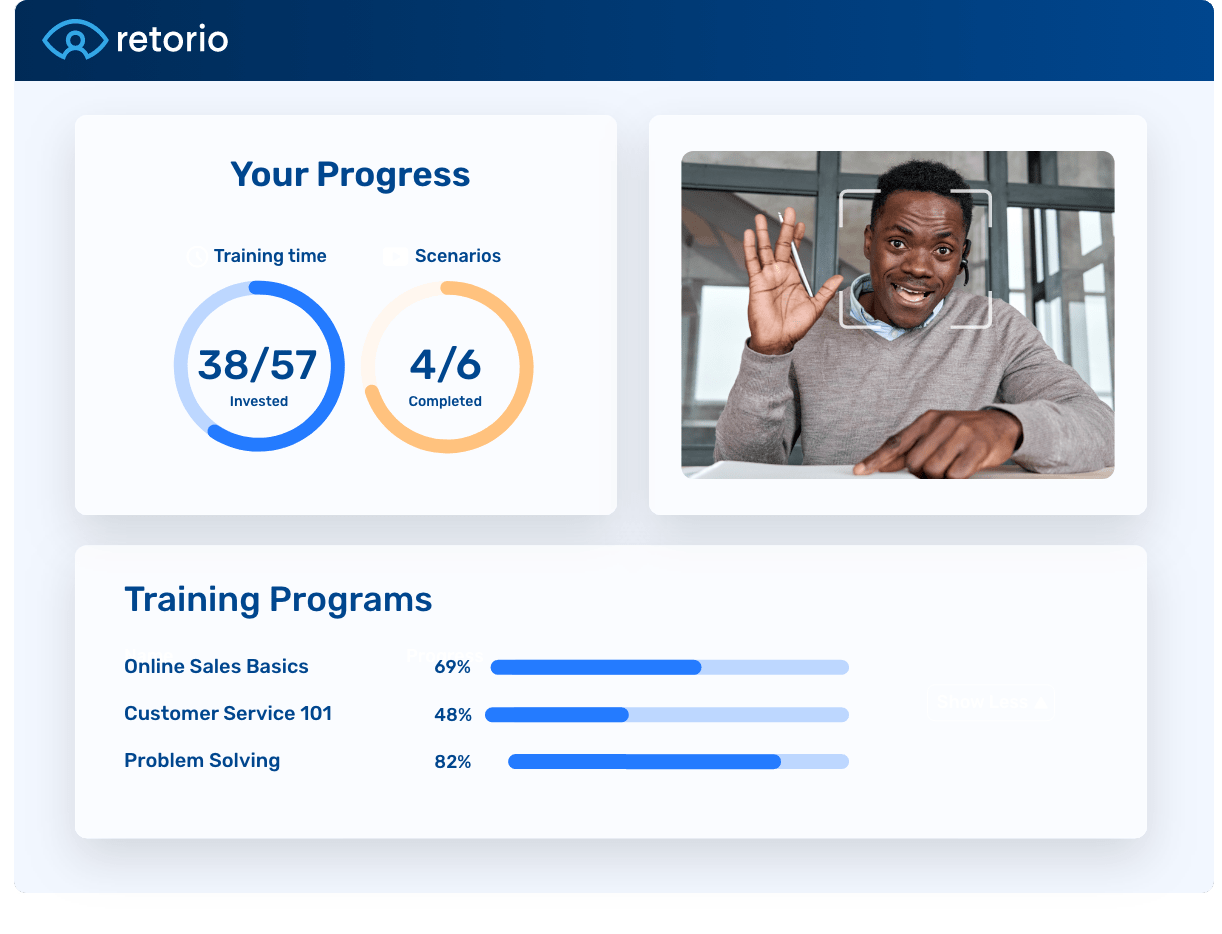The Challenge: As customer expectations rise alongside talent shortages, organizations must expand L&D initiatives to keep up. This starts with fine-tuning the social and emotional abilities machines cannot master.
Soft skills are the backbone of customer service. In fact, the proportion of companies addressing empathy and interpersonal skills has doubled in recent years.
But what exactly are the most vital skills, and how do you train them?
What’s in this post?
What are soft skills?
To understand the value of soft skills, we must first distinguish them from hard skills. Here is the breakdown:
Quantifiable skills gained through formal education, experience, or training.

- Computer programming
- Creative writing
- Foreign language proficiency
- Video production
- Photoshop
Interpersonal skills and social competencies developed over time.

- Negotiating
- Teamwork & Collaboration
- Leadership skills
- Problem-solving
- Time management
Why are soft skills crucial for customer service?
The Direct Impact: Soft skills dictate the customer's experience. While hard skills solve the technical problem, soft skills dictate how the customer feels about the solution.
Good communication, active listening, and empathy allow representatives to effectively understand needs. When customer-facing employees master these skills, customers feel heard, leading to:
- ✅ Increased Customer Loyalty
- ✅ Higher CSAT Scores
- ✅ Positive Word-of-Mouth Recommendations
The 10 Non-Negotiable Soft Skills for Customer Service
Hard skills get you the job; soft skills keep the customer. Here are the 10 traits that separate average reps from top performers.
1. Active Listening
“Man’s inability to communicate is a result of his failure to listen effectively.” — Carl Rogers
Listening is not just "hearing." It is engaging the mind to truly grasp needs. It builds immediate rapport and makes the customer feel valued, not just "processed."
2. Clear Communication
📉 The Reality Gap: Research from Ketchum finds only 31% of employees believe leaders communicate effectively.
This means speaking succinctly, avoiding jargon, and verifying understanding. Clear communication prevents the "back-and-forth" that kills efficiency.
3. Empathy
Empathy is the ability to imagine what the customer is feeling. According to HBR research, the top 10 empathetic companies generated 50% more earnings than the bottom 10.
4. Patience
Customers are often confused or frustrated. Patience is the capacity to stay composed and offer solutions without succumbing to frustration or indifference.
5. Flexibility
Scripts only go so far. Flexibility enables reps to adapt to unique problems and think innovatively when the "standard procedure" fails.
6. Positive Attitude
Attitude is contagious. A positive demeanor can de-escalate a tense situation before it even begins. It transforms a "transaction" into an "experience."
7. Conflict Resolution (The McKinsey Method)
McKinsey identifies five key techniques for solving problems under pressure:
- Enhance Communication: Increase frequency to prevent misunderstanding.
- Adopt Perspectives: Genuinely interest yourself in their rationale.
- Avoid Escalation: Resist the urge to react with anger.
- Address Promptly: Don't let issues fester; tackle them now.
- Take Breaks: Pause to reflect and reset emotion.
8. Growth Mindset
The market changes daily. Reps must be hungry to learn new tools, trends, and product updates to remain valuable.
9. Time Management
Speed matters. Managing time effectively means addressing inquiries promptly, which is directly correlated to high CSAT scores.
10. Negotiation
Finding the "Win-Win." It is about balancing the customer's happiness with the company's policy and profitability.
How to Train Soft Skills (The Modern Way)
Identifying the skills is easy; training them is hard. How do you scale empathy training across a global team?
A major logistics company faced a challenge: inconsistent service across borders. They opted for an AI Coaching Platform (Retorio) to provide on-demand training.
The Result: Employees could practice soft skills with AI avatars anytime, anywhere, ensuring a uniform standard of care without expensive in-person workshops.





